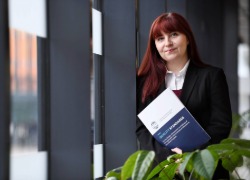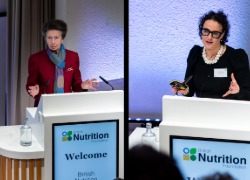Breaking down the barriers to the information superhighway
An international conference, to be held in Middlesbrough later this month, will question whether the Internet revolution will really do much to help the lot of the poor and other disadvantaged people.
The event being hosted by the University of Teesside, from April 26-28, 2000, will bring together experts from Western Europe, Russia and North & South America.
Conference organiser, Leigh Keeble, says: "Politicians like Tony Blair and Bill Clinton spend a lot of time proclaiming the benefits of the Internet and believe it will bring new employment and educational opportunities for all. But our speakers, who all regularly use the latest information technology, will question this assumption.
"Merely putting a computer in every classroom and library won't necessarily narrow the gap between rich and poor. Infact it may well widen the advantages and disadvantages faced by different sections of society and create a new digital divide."
Women, for instance, can feel intimidated when using Internet 'chat rooms', says Brian Loader, co-director of the University's Community Informatics Research & Applications (CIRA) Unit. "Flirting on the Net is pretty common-place. As in real life this can turn into sexual harassment, and some women using the Internet have said it can feel like cyber-rape."
Other examples of the information divide include middle-class professionals using the Internet to find out about school and health service league tables to make sure they are moving to a neighbourhood with a good school and local health service and the spread of e-commerce. "A lot of people don't have credit cards and are denied access to Internet shopping bargains," says Brian Loader.
The 'Community Informatics' conference will examine what can be done to minimise the digital divide and bring together lessons from across the globe. Speakers include Kevin Harris - an adviser to the UK Government's Social Exclusion Unit; Doug Schuler - an activist with Computer Professionals for Social Responsibility and a founder of the Seattle Community Network; Mike Gurstein - a Canadian academic and former adviser to the UN; Dr Susana Finquelievich - an expert on urban social movement and interactions between State and community from Buenos Aires; and Sergei Staveef, from St Petersburg who will give a Russian perspective.
For more information about CIRA and the conference contact the organisers web-site - www.cira.org.uk/conf/ci or email Leigh Keeble on l.m.keeble@tees.ac.uk or phone 01642 342710.
 Teesside academic leads the way in setting professional
...
Teesside academic leads the way in setting professional
... Teesside University leads new research into Roman Empire’s
...
Teesside University leads new research into Roman Empire’s
... Nourishing Tomorrow: my insights from the British Nutrition
...
Nourishing Tomorrow: my insights from the British Nutrition
...